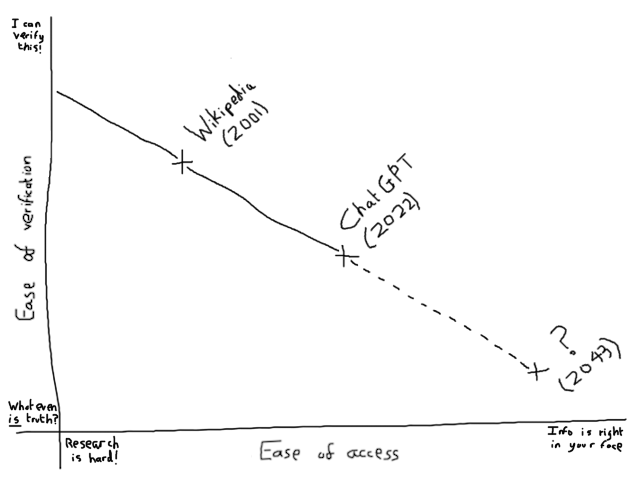INFORMATION TRAJECTORY 2024-07-01 Humans invented Wikipedia, which made accessing information highly-convenient, at the risk of questions about its authenticity (I'm well aware that in many subject areas Wikipedia routinely outranks many other sources for accuracy. But the point remains, because you've no idea what the bias of randomuser123 is; even if you check the sources they cite, you don't know what sources they omitted to include. I love Wikipedia, but I can't deny its weaknesses.). Then humans invented GPTs, which made accessing information even more-convenient (Sure, ChatGPT and friends aren't always more-convenient. But if you need to summarise information from several sources, you might find them a more-suitable tool than those which came before. Why do I feel the need to add so many footnotes to what should have been a throwaway comment?) at the expense of introducing hallucinations that can be even harder to verify and check. Is humanity's long-term plan to invent something that spews complete nonsense that's simultaneously impossible to conclusively deny? (Actually, now I think about it, I'm confident that I can name some politicians who are ahead of the machines, for now.) | |

|